When I was younger, much younger, I was very interested in photography. There was a magic about being able to freeze a moment in time to capture an event that will never appear in that exact juxtaposition of all the elements again. At least it seemed like magic to me.
Life progressed and my camera saw little action as I was busy trying to advance my career (which was not related to photography). I continued to take snapshots, as opposed to serious photographs, the interest in photography continued to simmer in my heart.
A few years ago, now that life is a bit more subdued, I purchased a bridge camera. Heretofore I had been using Canon point-and-shoot, jpeg only cameras such as the Canon PowerShot A75 with a whopping, for that time, 3.2 megapixels.
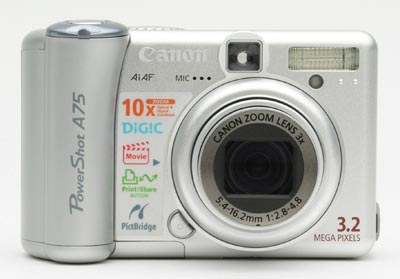
Canon PowerShot A75 picture courtesy of Imaging Resources
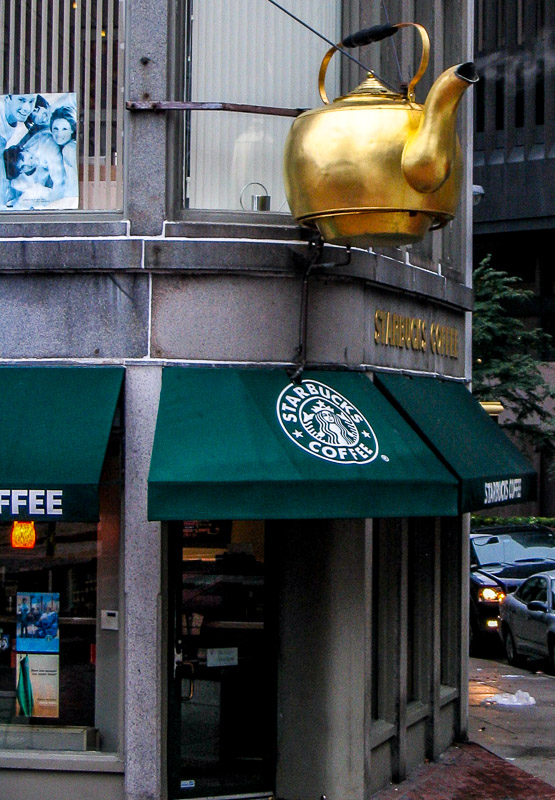
Picture of Starbucks Coffee Shop in Boston taken with the Canon A75 and cropped
That little camera went all over with me and took some fairly decent pictures; not great, but good enough!
I soon had to acquire a newer camera for a trip to Peru which I didn’t want to risk by taking my older A75 which was “acting up” at that time.
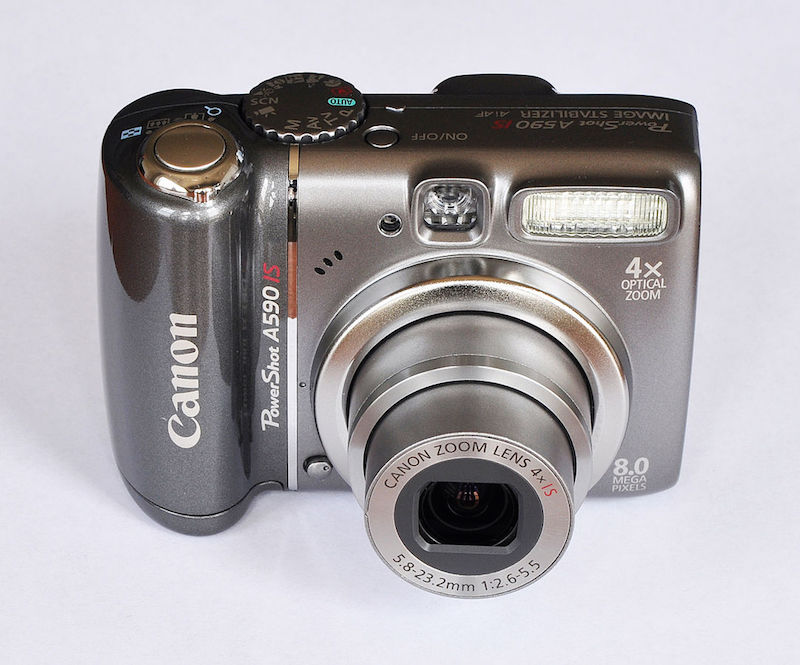
Canon PowerShot A590 courtesy of Wikipedia Commons
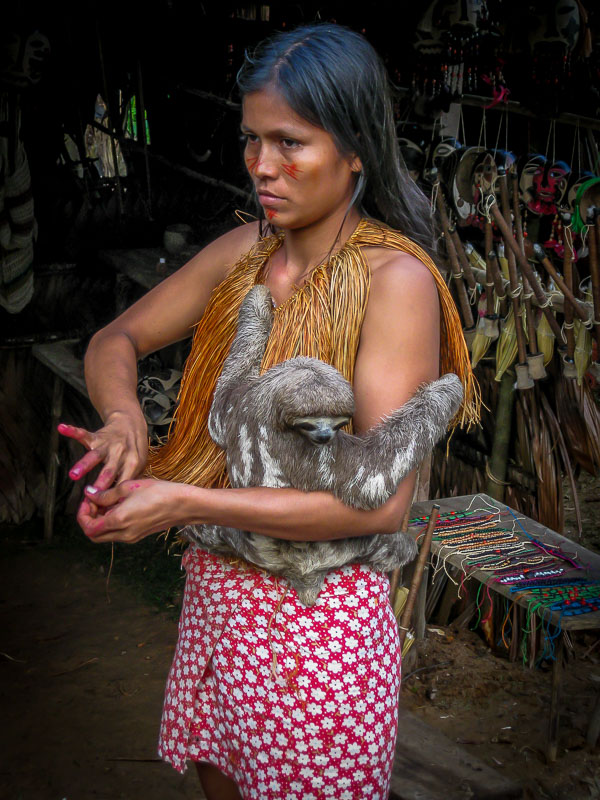
Young Amazon native girl with pet sloth taken with the PS A590
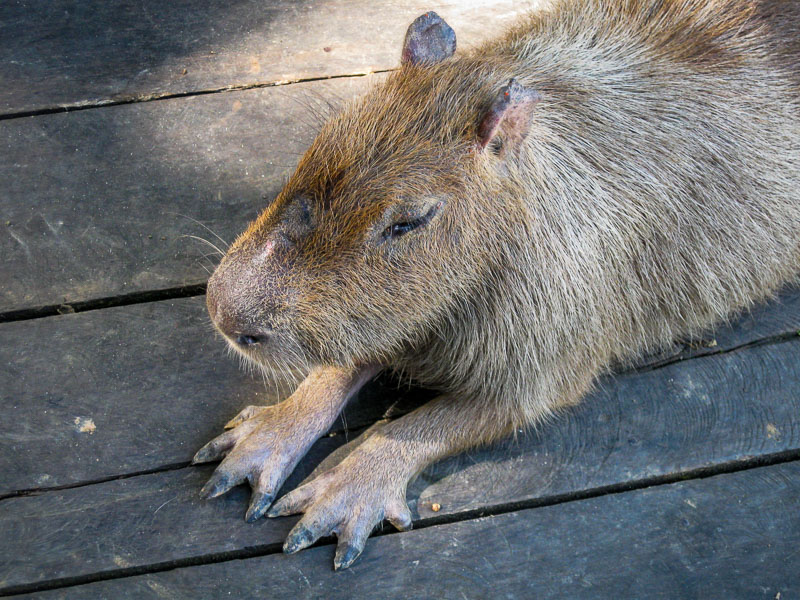
A pet Capybara in the Amazon taken with the PS A590
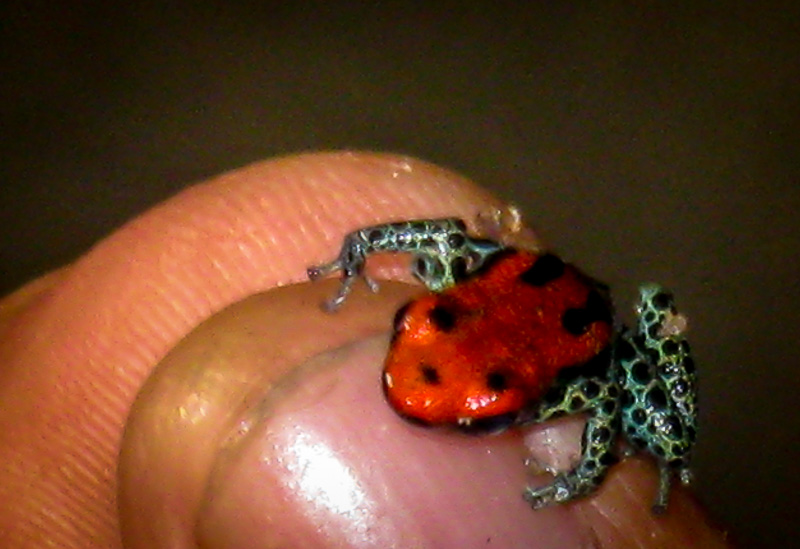
Rather closeup picture of poisonous frog in the Amazon taken with PS A590 and cropped
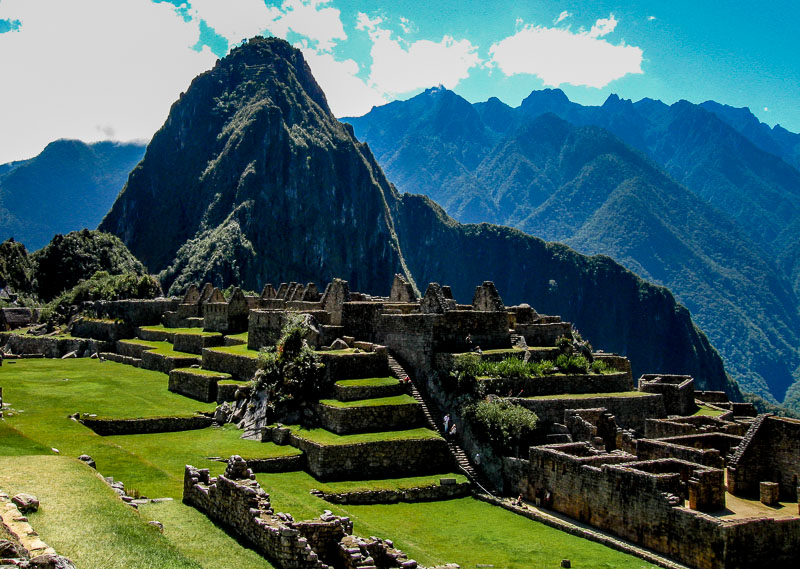
Machu Pichu taken with the PowerShot A590 – Sorry, I didn’t know about blown highlights!
These cameras served me well and I still bring the A590 with me whenever I want to capture something quickly and with ease. Of course now that I have a hand-me-down iPhone 5, I can also tuck that into my pocket for the same purpose.
A couple of years ago, I became interested in bird watching. I am not a fanatic, but I do like birds and I enjoy trying to identify them. It was a short hop, skip and a jump to an interest in photographing birds. I did some research and found out that there are approximately 950 different birds in the United States and at some point in the year over half of them spend time in my newly adopted state of Arizona (although not exactly in my neighborhood!).
I began to wonder how many of those birds I could photograph and record. I wasn’t thinking of beautiful bird photographs like those of Scott Bourne and other nature photographers. I was simply thinking about pictures of record.
So…I did what most people would probably do and I signed up for a guided bird hike and I brought my Canon PowerShot with 4x zoom with me. Screech…..
Those birds are so far away! All I can see is an outline of a bird. How am I to identify that bird from such a photograph?. Of course I do exaggerate a bit. There were some birds only a short distance away that could be identified with the naked eye and/or a quick snap, but it was becoming obvious that I would need a “better” camera, i.e. with more of a zoom.
Compounding my dilemma was that I wanted to try shooting in the RAW mode which is/was recommended by most accomplished photographers I follow and it was the advice offered repeatedly. “If one wanted to take their photography to the next level, they needed to learn to shoot in RAW and to post process!” Well, my current photographic skills weren’t at any level near that goal at that time, but my ambition was to get there.
I did what I usually do nowadays and I began reading the reviews on the Internet and after many, many hours of reading and pondering, I decided to purchase a Canon PowerShot SXHS 50 with a tremendous zoom lens. It met my main two criteria, i.e. a lot of reach and it could shoot RAW.
Canon PowerShot SXHS 50 image courtesy of Imaging Resources
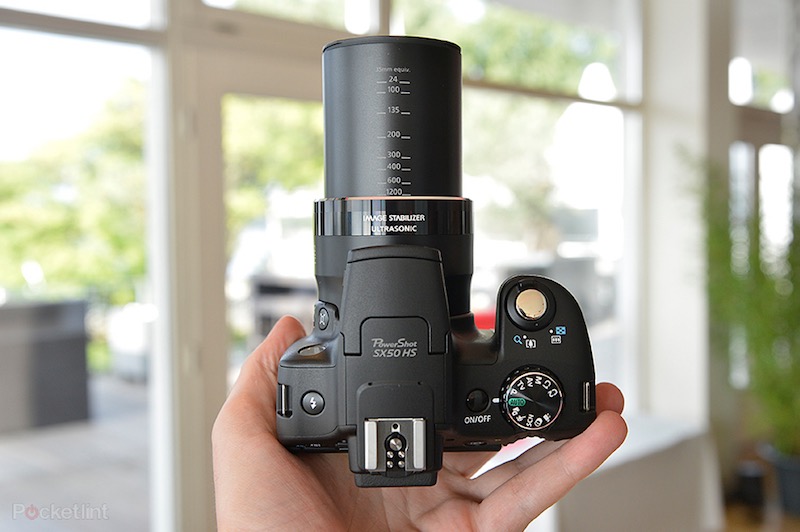
Canon PowerShot SXHS 50 with lens extended image courtesy of CNET.com
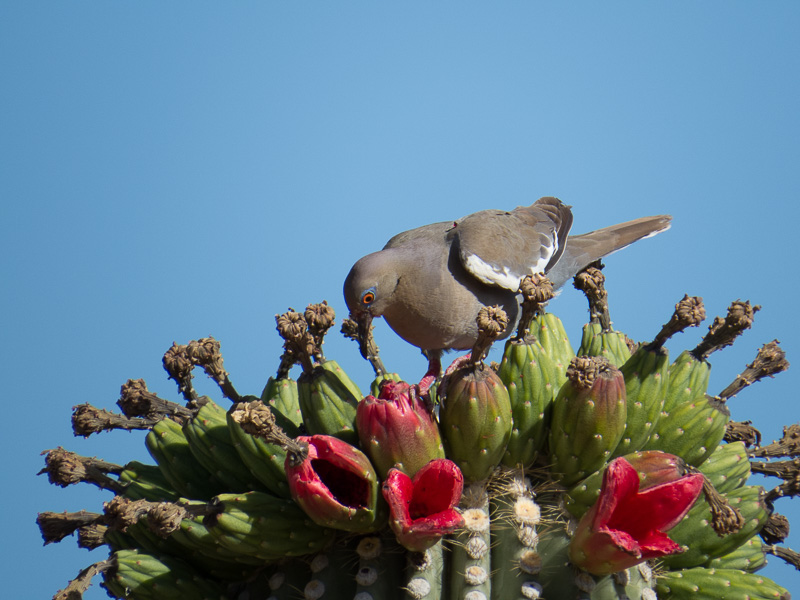
A White-winged dove atop a saguaro – One of the first bird pictures taken with the Canon PowerShot SXHS 50
There were some serious drawbacks though and I understood that going in. The camera did not do well at high ISOs as a matter of fact, most accomplished shooters using this camera advised to stay at 200 ISO or lower so that was going to be one limitation. I did set the auto ISO not to exceed 400 to give myself some leeway.
This camera did not disappoint me. It could take some really nice photos and I was able to get up close and personal to a lot of birds and other animals which I really liked. It did provide some challenges along the way. There was some chromatic aberration and noise in tricky situations. Of course I took them into an editing program and modified them to reduce these issues as much as possible and I could live with that.
For more than a year, I was pretty happy with my choice and then…and then…
Read additional posts in My Photography Conundrum series:
My Photography Conundrum – Part 2
My Photography Conundrum – Part 3
My Photography Conundrum – Part 4
See previous Photography posts HERE